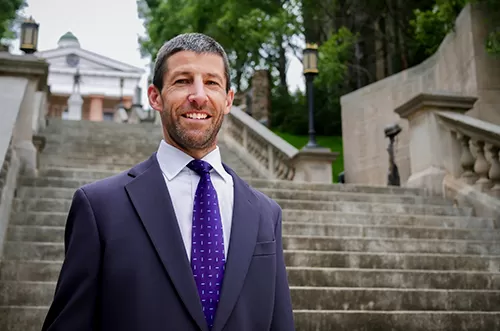Sullivan Mech. Constrs., Inc. v. KBE Bldg. Corp., 2020 U.S. Dist. LEXIS 91751, 2020 WL 2735726 (W.D. Va. May 26, 2020)
In November 2017, the Commonwealth of Virginia and the Rector and Visitors of the University of Virginia (collectively “Owner”) contracted with KBE Building Corporation (“KBE”) for KBE to construct upper-class student housing (the “Project”). KBE and Sullivan Mechanical Contractors Inc. (“Sullivan”) entered into a $5.1 million subcontract for Sullivan to perform plumbing and HVAC work at the Project (the “Subcontract”). KBE paid Sullivan $4.9 million on the Project, but Sullivan alleged that it was stilled owed $579,000.00. On March 16, 2020, Sullivan filed its Complaint and on March 18, 2020 Sullivan served KBE through KBE’s registered agent. KBE’s answer was due on April 8, 2020. On April 9, 2020, Sullivan filed a motion for entry of default judgment against
KBE and the Clerk entered default judgment against KBE on that day. On April 15, 2020, KBE filed a Motion to Vacate Entry of Default and Opposition to motion for Entry of Default Judgment. Attached to KBE’s Motion was KBE’s Answer and Counterclaim. KBE alleged that COVID-19 impacted its ability to investigate and consult with staff and personnel with knowledge of the allegations in Sullivan’s Complaint and to respond thereto, which delayed its filing of the same.
The Court found that KBE met the requisite showing for purposes of setting aside entry of default. A court may set aside an entry of default for good cause. In so doing, a court should consider whether the moving party has a meritorious defense, whether it acts with reasonable promptness, the personal responsibility of the defaulting party, the prejudice to the party, whether there is a history of dilatory action, and the availability of sanctions less drastic. Any doubts about whether relief should be granted should be resolved in favor of setting aside the default so the case may be heard on the merits. In the context of a defendant’s motion to set aside the entry of default or default judgment, a meritorious defense is established if the defendant proffers evidence that, if believed, would permit the court to find for the prevailing party. While the bare allegation of a meritorious defense is insufficient, the defendant’s burden is minimal.
In its Answer, KBE admitted it is the general contractor for the Project and that it subcontracted with Sullivan. KBE denied that Sullivan is entitled to any further payment and denied that KBE breached the Subcontract. In its Counterclaim, KBE alleged that Sullivan breached the Subcontract by failing to provide enough skilled workers, perform its work in accordance with the schedule and thereby interfering with the work of others, failed to follow KBE’s directions regarding quality of work, attending meetings, manpower needs, available work areas, sequencing of work, and coordination of Sullivan’s work with that of other trades, created unclean conditions and failed to clean up waste and debris in a timely manner, failed to provide daily reports or to maintain proper and accurate as-built drawings for Sullivan’s work, and other alleged failures. The Court found that KBE had done more than raise a meritorious defense by identifying Sullivan’s numerous specific breaches of the Subcontract, so the Court weighed this factor in favor of vacating the entry of default. KBE also moved to vacate the default less than a week after it was entered, so the Court found this factor also weighed in favor of vacating entry of default.
As to KBE’s responsibility for the default, the Court found that the factor weighed equally both ways because KBE was served and should not have been surprised by the lawsuit given that two other lawsuits for the Project had been filed against KBE, but there were stay at home orders where KBE’s headquarters and counsel’s offices were located due to COVID-19 which impacted KBE’s ability to investigate and consult with staff and personnel with knowledge of the allegations in Sullivan’s Complaint and caused KBE to operate at limited resources. The Court also found that Sullivan would not suffer prejudice if the Court vacated the entry of default because KBE moved to vacate the entry of default one week after it was entered, so this factor weighed in favor of the Court vacating the entry of default. Because KBE did not have any history of dilatory action and quickly moved to set aside the default, the Court found that this factor weighed in favor of vacating the entry of default. As to whether there were less severe sanctions, the Court held that there were and awarded Sullivan its attorney’s fees and costs incurred in seeking to obtain and retain its default as a sanction.





